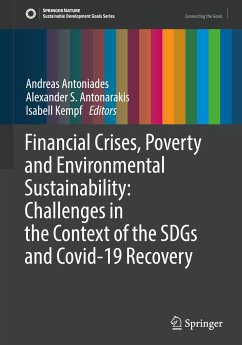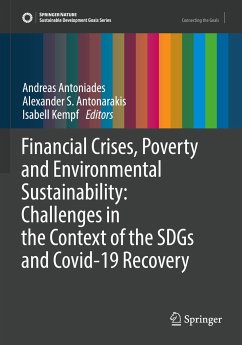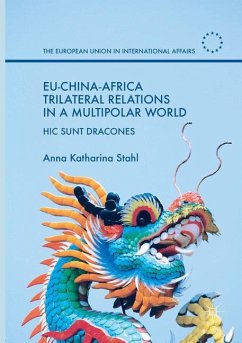
Are there varieties of capitalism in African political economies?
The impact of colonialism and globalization on the emergence of national economies in Uganda and DR Congo

PAYBACK Punkte
0 °P sammeln!
Seminar paper from the year 2009 in the subject Politics - International Politics - Region: Africa, grade: 1,7, University of Cologne (Forschungsinstitut für Politische Wissenschaft und Europäische Fragen), course: Comparative Political Economy: Varieties of Capitalism, language: English, abstract: Since the last decade scientific research on capitalism has experienced a noticeably grownattention among scholars as well as politicians. One of the most discussed approaches in thisfield of comparative analysis of political economy is the 'varieties of capitalism' theory1developed by Peter Hall ...
Seminar paper from the year 2009 in the subject Politics - International Politics - Region: Africa, grade: 1,7, University of Cologne (Forschungsinstitut für Politische Wissenschaft und Europäische Fragen), course: Comparative Political Economy: Varieties of Capitalism, language: English, abstract: Since the last decade scientific research on capitalism has experienced a noticeably grownattention among scholars as well as politicians. One of the most discussed approaches in thisfield of comparative analysis of political economy is the 'varieties of capitalism' theory1developed by Peter Hall and David Soskice. Their approach basically focuses on howdifferent actors may behave in a certain politico-economic state configuration and on howfar this configuration can determine a national type or variety of capitalism as well as theeconomic success of a political economy.This approach, though, has been designed with a view to the so-called 'developedeconomies', which are to be found in Western and Central Europe as well as in NorthAmerica. In the era of globalization other economies have come into play, with theirperformances ranging from real success stories, as in several Asian economies, toconsiderable failure, as in most marginalized Sub-Saharan African economies.After presenting Hall and Soskice's approach and some of its criticisms in order togive a conceptual framework, this paper will provide a very brief overview of the politicaleconomy of colonialism, followed by a case-study analysis of the contemporary politicaleconomies of Uganda and the Democratic Republic of Congo (DRC).The main research question is to identify to which extent varieties of capitalismimported from colonial powers have fashioned today's economies in the chosen cases as'economic models' or how far the empirically established colonial economic systems areresponsible for post-colonial developments. The former colonial power in Uganda, GreatBritain, will be considered as a Liberal Market Economy, whereas DRC's colonial power,Belgium, will be assigned the Coordinated Market Economies2 type. In order to avoidanalytical shortcomings, this paper also tries to take into consideration the discrepancybetween those models and the colonial reality as well as postcolonial developments, whichhave evolved due to domestic characteristics or as a consequence of a globalizing politicaleconomy.













